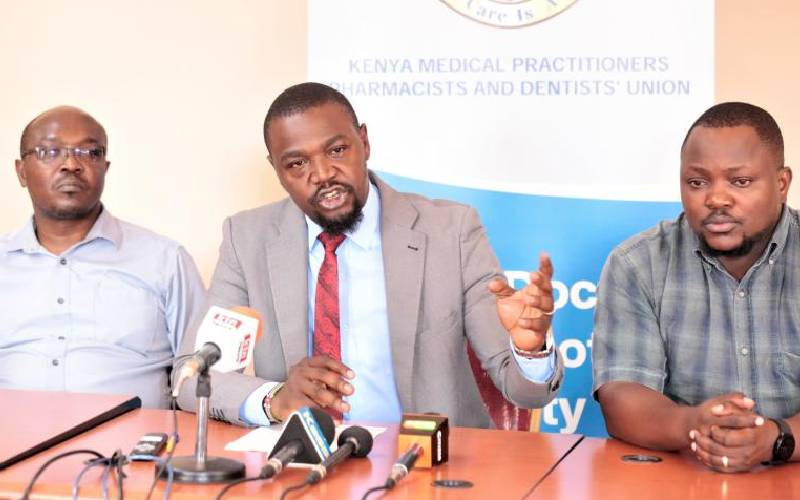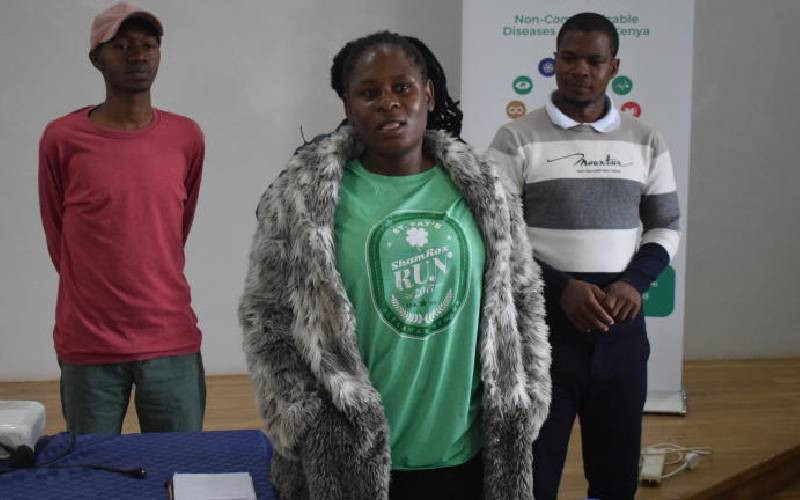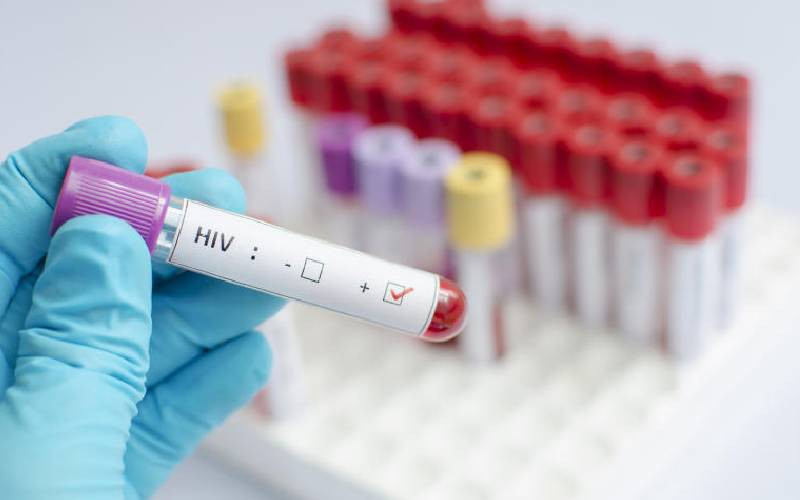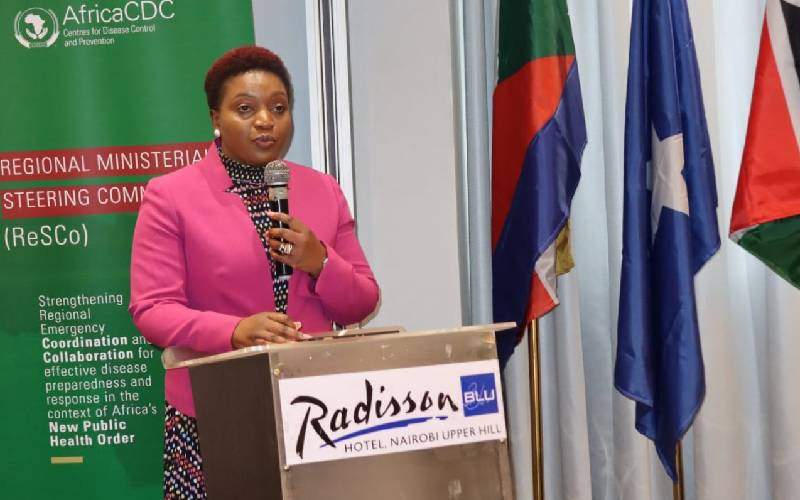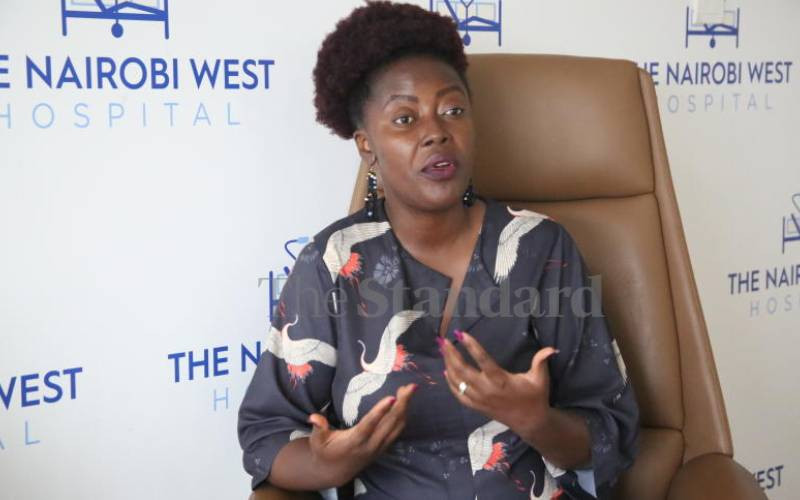
Melody Ochieng’ describes herself as a pillar of hope for cancer patients after surviving a long and arduous battle with breast cancer.
Just like with most cancer cases, Melody thought her life had come to an end. However, after going through blood transfusion, surgery, chemo and radiotherapy, she was declared cancer-free.
“When I was told I was cancer-free, that was the best day of my life. I felt happy. I felt God was with me, that God listened to me. I knew cancer would be a thing of the past in my and my family’s life,” she says.
We found the bubbly Melody at Nairobi West Hospital. She was carrying fruit baskets that she takes every Tuesday to cancer patients.
At the Cancer Centre, there are patients seated, some alone, others with their loved ones. Some are covered in blankets while others sit while holding their crutches.
Melody walks to the front of the room and addresses them. They know her, and by their beaming faces, you can tell they like her.
Seeing Melody, who had lost her hair and weight, now glowing with a head full of hair is the motivation they all need.
She introduces herself briefly by sharing her journey with the new faces. She then crowns it with a motivational quote and a verse from the scripture, afterwards handing each patient a fruit basket.
- Scientists unveil discovery in bowel cancer research
- New tech can detect tumours previously too small to be seen
- Cancer patient stranded in Abu Dhabi to be evacuated
- New therapy launched to combat lung cancer and improve patient outcomes
Keep Reading
“I started this initiative because in as much as I had help and love, I felt I did not really have someone who has gone through the same journey, who can be there constantly to pray with me, encourage me, share my fears and come through for me,” she says.
Melody and her husband decided to start a foundation to help patients as they hope to be that light at the end of the tunnel for those battling different forms of cancer.
One of the patients who was there listening to Melody was Pauline Gatheri from Kirinyaga County. This was Gatheri's second-last day of radiotherapy. She says she is happy that the scariest part of her life is drawing to an end.
“Cancer is not a death sentence. I never thought I would be here. I urge people to go for early examinations and mammograms. The earlier you discover, the better,” she says.
Gatheri notes that her husband has been her strength throughout her treatment journey. However, she did not tell her children what she was battling with, fearing their young minds might not comprehend it.
“When I lost my hair my children asked, and I told them that I was tired of long hair. My husband has really supported me; I really thank him. When I was undergoing chemotherapy, he was a real partner. I couldn’t wash my clothes. He did it,” she says.
Gatheri says she hopes Melody can go to remote areas so that cancer patients there can be positively impacted.
“The first time I saw Melody with a head full of hair, I did not believe she had gone through cancer. What I can tell someone with cancer, is that it is not the end,” she says.
Dr Andrew Kanyi Gachie, who is a pathologist and also the Chief Medical Director at Nairobi West Hospital, says before they make any decisions, they study the patient by making a diagnosis.
“We make a histopathology report which is a very basic report a patient would need. What really tells you have cancer is a report signed by a pathologist saying what cancer you have, from what source and even classified further into stages,” he says.
Dr Kanyi adds that the patient’s journey starts from the clinic. After being reviewed and suspected to have a tumour, they will be taken to theatre for a biopsy. This involves a small piece of tissue being taken for diagnosis for one to begin treatment.
Those cancers that can be managed by surgery are referred to the once-surgery unit. However, there are others that can be managed through radiotherapy.
“We have the most advanced form of radiotherapy able to treat the patient within a short period of time and very specific in targeting where the tumour or the cancer is and has minimal side effects,” he says.
The third step is chemotherapy. This is the treatment of cancer using drugs. It is an area that requires a lot of care because the drugs have side effects.
“It would be very bad and almost criminal to start a patient on treatment without a proper follow-up. We are actually saying that these drugs have side effects and it would be very unfortunate if a patient dies because of side effects,” says Dr Kanyi.
If a patient does not show up for treatment they always follow up and intervene.
Dr Lalit Varadpande, a Medical Oncologist at The Nairobi West Hospital, says chemotherapy can be delivered either orally – in the form of tablets, or capsules - or injected inside a vein (intravenously) or under the skin (subcutaneous). Rarely in certain situations does it require to be administered intrathecally (inside the spine)
On how a patient can prepare for chemotherapy, Dr. Lalit says there is no special preparation needed but it's good not to have heavy food before the chemotherapy session, since some drugs can cause nausea and vomiting.
“It’s also important to inform the oncologist if you are taking medications for other illnesses and or any use of herbal/alternative therapies because some medications’ interactions can cause health issues,” he says
Dr Varadpande says each chemotherapy session can last anywhere between a few minutes or hours to days, depending on the cancer being treated. The duration between each cycle is commonly between 14 and 21 days. The number of cycles of chemotherapy depends on the cancer.
Chemotherapy does not hurt. However, there are side effects.
“Side effects of chemotherapy can be immediate like allergic reactions, nausea and vomiting. Others can be delayed like a fall in blood count, hair loss, diarrhoea, oral ulcers, and nerve involvement. Very rarely they can cause cancers themselves. Most of these side effects are readily manageable with supportive care,” he says.
Dr Varadpande says most side effects are temporary and are reversible once the treatment is over. He also adds that there is no reason to fear taking treatment due to side effects.
During the 2023 Mashujaa Day celebrations in Kericho, Dr Elizabeth Wangia, who is the Director of Health Financing at Afya House, said there will be seamless service delivery from primary level, to secondary and critical level.
To access the Emergency Chronic and Critical Illness Fund, a patient will need to be a member of the Social Health Insurance Fund.
“Once you deplete the limit of your benefit package, it’s not depleting the fund. It is depleting the limit given within the benefit package. If the benefit package indicates that it covers 6 cycles, and the doctor prescribes 10 cycles those extra 4 will be sourced from the Chronic Disease Fund. That is how we are envisioning it,” she says.
 The Standard Group Plc is a multi-media organization with investments in media platforms spanning newspaper print
operations, television, radio broadcasting, digital and online services. The Standard Group is recognized as a
leading multi-media house in Kenya with a key influence in matters of national and international interest.
The Standard Group Plc is a multi-media organization with investments in media platforms spanning newspaper print
operations, television, radio broadcasting, digital and online services. The Standard Group is recognized as a
leading multi-media house in Kenya with a key influence in matters of national and international interest.

